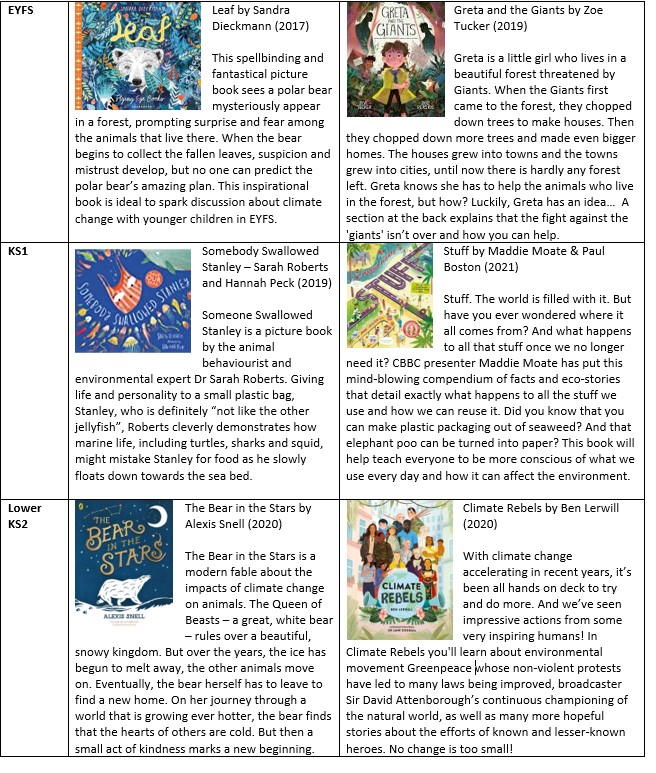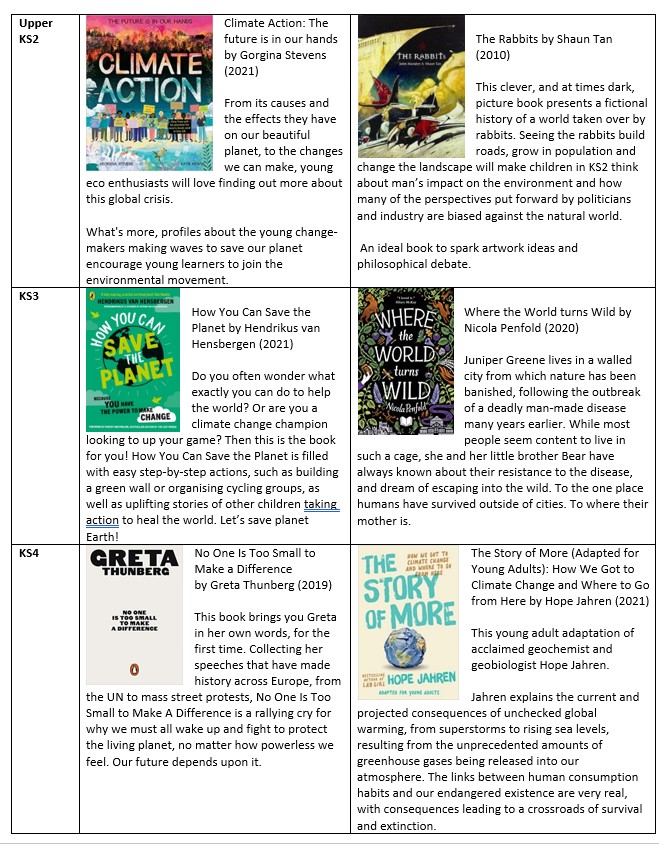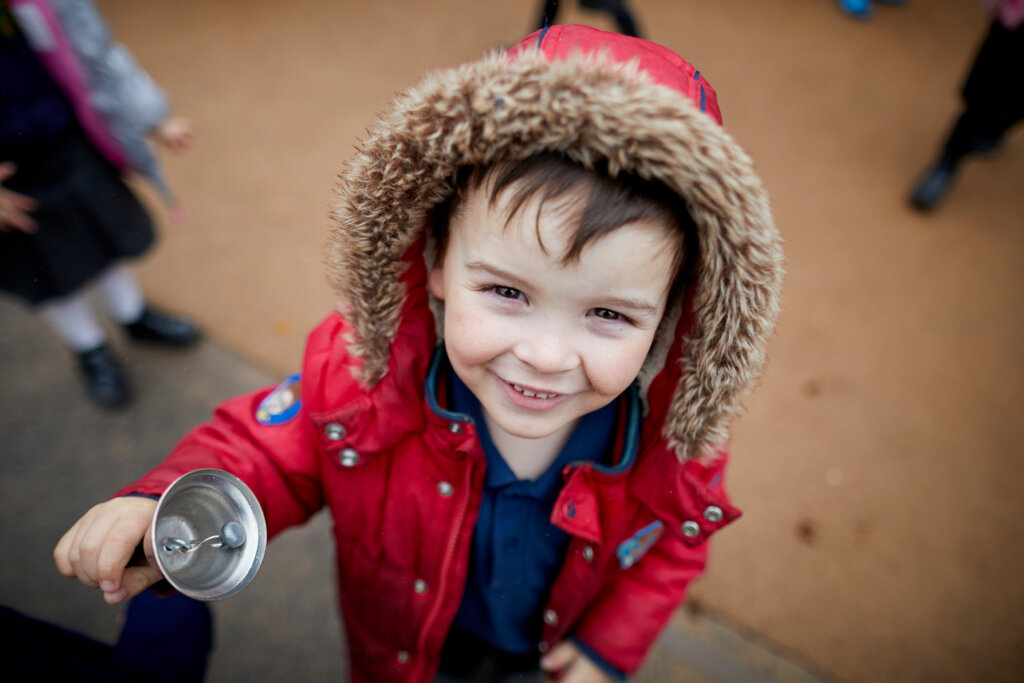It is likely that you have heard about COP26 but what is it and what do we, as educators need to do about it? For nearly three decades the UN has been bringing together almost every country on earth for COPs – which stands for ‘Conference of the Parties’. This year will be the 26th annual COP but, in the three decades that global climate summits have been taking place, climate change has gone from being a fringe issue to a global priority. COP26 has a unique urgency; if we don`t act now it could be too late to reverse the impact of global warming.
The speeches that are talking place at COP26 are incredibly thought provoking and moving; they need to be. The remainder of this decade towards 2030 will be crucial in climate change and, ultimately for the lives of our children.
How can schools help?
The amount of change we can make in schools, through education is significant. The DfE explains that ‘Education is a vital tool in raising awareness and equipping future generations with the skills and knowledge needed to tackle climate change.’ (2021) but Campaign against Climate Change explain that 75% of teachers feel they haven’t, yet, received adequate training to educate students about climate change. Time is running out so what can schools do now to address the climate emergency?
School Development
School leaders know how hard the juggle of prioritising is within education – we are pulled in so many different directions; we have to think strategically to ensure that the most pressing school issues to impact our children are addressed first…but where does climate change fit in with this?
Climate change is something that, if it is not addressed, will mean our curriculum or the education of our children will no longer matter. How many of us, though, have considered climate change within our school evaluations? How many have this as a priority on our school development plans? One of the decisions that you may choose to take is to audit your school’s current position and create an action plan to make changes. Some of the areas you may want to consider are:
Resources – Consider the resources that your school purchases. Are there any environmentally friendly switches that you can make to stationery, school supplies or cleaning products? Many school suppliers are making to changes to their products and by thinking about where you buy from and what you buy will help reduce the carbon footprint.
Transport – Many schools encourage children to get involved in walk to school week but could this be developed further so that the way in which children travel to school becomes a bigger talking point throughout the year? Transport used on school trips is also worth considering – look at local options that are in walking distance and, where that is not possible, consider how essential the school trip is. We cannot deny that there are so many benefits to school trip, but do consider the most environmentally friendly way to travel to the location.
Food – How many children’s school dinners include meat and are the ways to change this to help reduce our carbon footprint further? Is food locally sourced? If children have snacks, are these purchased in the most environmentally friendly way? Cost is obviously a huge consideration here but one cost effective approach would be to take the effort to plant, care for and grow fruit and vegetables that can be used in school dinners or in food technology lessons is also a useful action to help children learn about sustainability, healthy eating and reduce our carbon footprint.
Energy – The cost of changing over to renewable energy sources such as solar panels or wind turbines may not be something that schools can currently fund, but purchasing energy from renewable suppliers is something we need to have on our radar as it can make a huge impact to our carbon footprint. Later in this blog we will explore plans from the Education Secretary but, until then, a simple measure to consider is do we ensure devices and lights are switched off when they are not needed? Can we limit our use of energy sources in our schools?
Committee – it is worth considering having governors, parents, a member of SLT, staff and children form a climate change committee to help support the implementation of sustainable actions to improve the school’s carbon footprint. You can download an audit that children could complete as part of this committee and use to feed back to the committee. The strategic actions from SLT or projects implemented by children could also involve local business and the community – ensuring all are on board with protecting our planet.
Let’s Go Zero is a campaign that is encouraging schools to unite and become carbon zero by 2030 ; it is aimed at Headteachers and School Leaders to help schools with strategic decision making.
Curriculum
We are all aware that the school curriculum and what we teach our children is extremely important. Many of us often feel like we are playing a giant game of Jenga in constructing a curriculum with enough coverage and depth of knowledge and skills for all subjects. What we also have to remember, when thinking about our curriculum, is that today’s children are preparing for a world that is not like the world we see today. This generation are likely to face challenges that are far greater than any other generation have ever faced; saving humanity. What’s more is that they will be doing so knowing that their parents, grandparents and ancestors may have caused or contributed to the challenge that they face.
We need to provide a curriculum that addresses and prioritises climate change in order to support in creating a sustainable future for our children. Education is crucial in promoting climate action. It helps children, and their families, to understand and address the impacts of the climate crisis, empowering them with the knowledge, skills, values and attitudes needed to act as agents of change.
Climate change is already taught in science and geography lessons in England as part of the curriculum, though it can be linked to most National Curriculum subjects and can be planned for progressively throughout each and every year group. Many resources are available to help teachers in planning engaging ideas to fit into their school curriculum, whilst being mindful of teacher’s workload. Some of these websites are listed here:
- The DfE throughout COP26 and beyond are sharing examples of success stories from teachers and pupils for inspiration and ideas on their webpage.
- The UN Climate Change have created a website full of resources and stories to help schools with educating ourselves, and our children, about changes needed to protect our planet.
- WWF is another wonderful website that is jampacked full of resources that can help our children to understand how they can take action to help in the fight against climate change right now, while ensuring that they are equipped to drive, and thrive in, a zero-carbon future.
- Climate Kids is a website by Nasa that is child friendly and full of useful videos, articles, activities and poses big questions for children to explore or for you to think about with the children.
- UNESCO provides multimedia educational resources for primary schools including ideas for classroom activities under the topic of ‘climate action’. This website also tackles other global concerns.
(The Education Secretary has also revealed that they have plans to change the curriculum so that Climate Change is addressed further. We will explore this further later on in the blog!)
Texts
Stories have been told for generations because of their power in helping us to understand, learn and empathise with many topics. In using texts to help support our school curriculum, we are giving children a tool to help explain such a big topic, to make sense of the world, their emotions and the connections it all has with their life. Here are a few suggestions of texts that may be useful for children of different age groups:


Stories and texts have a strong influence on children’s understanding of the world. Texts do not just develop children’s literacy; they convey values, beliefs, attitudes and social norms which, in turn, shape children’s perceptions of reality. Books are essential in helping our children to understand the need to act now to save our world.
What are the Government doing for our schools?
Geoff Barton, general secretary of the Association of School and College Leaders, said many schools are already working “very hard on tackling climate change” but “children and young people rightly want to see far more concerted action from policy-makers.”
The Education Secretary, Nadhim Zahawi, is setting out plans at the COP26 climate summit in Glasgow. He plans, by 2023 to support schools to teach children about nature and their impact on the world through a “model science curriculum.” Read more about his plans here.
Zahawi will also reveal plans for a Climate Leaders award. This will help children to develop their skills and knowledge in biodiversity and sustainability, with their work recognised at an annual national awards ceremony. Pupils will be able to progress through different levels of the award – bronze, silver and gold – in a similar way to the Duke of Edinburgh’s Award.
Also in his plans are pilot “energy pods” which can replace gas and coal boilers and supply a school’s heating and hot water without carbon emissions. The pods are being tested in some schools first and could be rolled out more widely to other public-sector buildings if successful. Schools, colleges and nurseries are also being encouraged to improve the biodiversity of their grounds.
Zahawi said “Empowering teachers in every school to deliver world-leading climate change education will not only raise awareness and understanding of the problem, but also equips young people with the skills and knowledge to build a sustainable future.”
The measures mentioned above will be part of a draft. This will then be built on over the next six months (in collaboration with young people, teachers, sustainability experts and environmentalists) before the strategy is published in April 2022.
Moving Forward
In addition to all of the above, we, as educators, need to take action, educate and give our children a voice. Greta Thunberg, in 2019, stated “You have stolen my dreams and my childhood with your empty words. And yet I’m one of the lucky ones. People are suffering. People are dying. Entire ecosystems are collapsing. We are in the beginning of a mass extinction…” Like Greta in 2019, many individuals are making passionate pleas at COP26 and we hope that this is enough to encourage the world leaders to take action now.
If we look towards the likes of Gretta Thunberg, David Attenborough or Xiye Bastida we can see the impact that just one person can make. Imagine the difference that we could make if all schools tackled climate control. One Education believe in putting children first; what is more important in putting children first than saving the planet so that our children and future generations can continue to live?
For support with any school development priorities or curriculum support please contact Jo.Gray@oneeducation.co.uk. To discuss current issues, research and updates, whilst exploring ideas, topics or themes then please take a look at our termly Subject Lead Networks or our SLT networks.
For support with purchasing books our partners, Peters, will assist schools in choosing books appropriate for their children and offer up to 30% off orders for One Education Customers.












